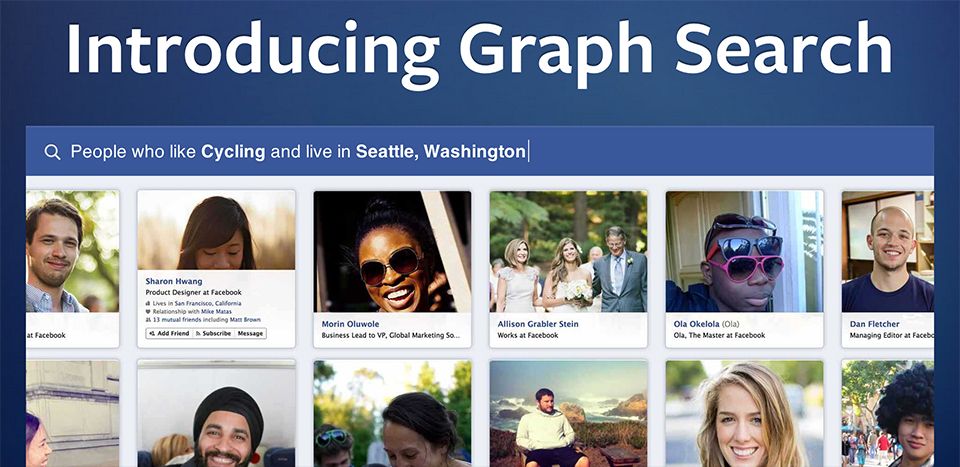Facebook has only gone and launched its own search engine. Called Graph Search, it is designed to let you filter through all the content you are connected to on Facebook and find the relevant information and images you want or need.
It isn’t exactly a web search, so Google needn’t worry. What it is, however, is a means to interact with Facebook in entirely new ways and get more from its nearly one billion users.
Not a web search
In a nutshell, Graph Search is a means to browse Facebook’s social graph - Facebook’s fancy name for its users, photos and one trillion connections. Basically, everything on Facebook right now.
The key to this search is privacy. Facebook hasn’t just opened its gates, or at least it says it hasn’t. Graph Search is designed to let you browse through everything you already had access to, but in a much easier to understand way.
The search, unlike a web search, is tailored to you. In Facebook’s 15 January press conference, Mark Zuckerberg used the example of hunting for a friend who lived in San Francisco. Asking Graph Search to "show me who I know in San Francisco" will do just that - it will show you all your friends in San Francisco.
Taking search further
Asking it what music your friends are listening to right now and it will provide that information. Likes are also linked into Graph Search, so you can use this to find out the restaurant a specific friend likes, or even their taste in movies.
The idea is that all the information a person shares about themselves is brought to the surface of Facebook. Take your Likes, for example, these form a core element to the new Graph Search.
If you had location services switched on when you "Liked" a restaurant in London for example, then your friend in the US could search for "restaurants my friends in London like" and he would get a list.
What exactly can it do?
At the moment, Graph Search can do a lot, but it does have its limits. People searches are at its core, so quickly finding specific friends is its main feature.
Then you have Likes, adding an element of individuality to each friend search. After that you have places, so you can see what restaurants, bars, clubs or anything else your friends like.
How does it work?
Graph Search is similar to Google in the sense that it delivers instant results. So as you are typing, information, friends and places will all start popping up.
And here's the clever bit: results are displayed in an order, depending on how closely the friend or family member is related to you. The more networks you have with someone, the higher up they appear in your search results. This way you get the information you want at a glance, but plenty more to look at should you want to delve deeper.
Searches can be refined to help you find people. Zuckerberg uses the example of meeting a person at a party. If they know someone you are friends with, then you can ask Graph Search to see a list of that friend’s friends and even refine it by location if the person you met is at a specific university or in a certain city or town.
What about privacy?
Graph Search does sound like it has opened up Facebook a lot more but don’t worry, for privacy fans nothing should change.
Whatever you currently share will be shared, and nothing else. On your timeline all you need to do is edit your "about" sections to make them all private. Facebook shows exactly how in this video.
Individual images have the same privacy settings applied as they presently do, so tagged images, for example, are all public, unless the person who posted them to Facebook made them private. Alternatively, you can untag yourself, and that image will still be on Facebook, but just be harder to find.
Ultimately, Graph Search shouldn’t be a privacy issue for those who are already strict about what they share on Facebook. Nothing is changing. The difference is that searching for information just became easier, so digging through the depths of your Facebook profile and checking what is private and what isn’t might be a good idea.
How can I get it?
Facebook Graph Search is currently available only in a limited beta to English (US) language users of the website. You can sign up for it here.


